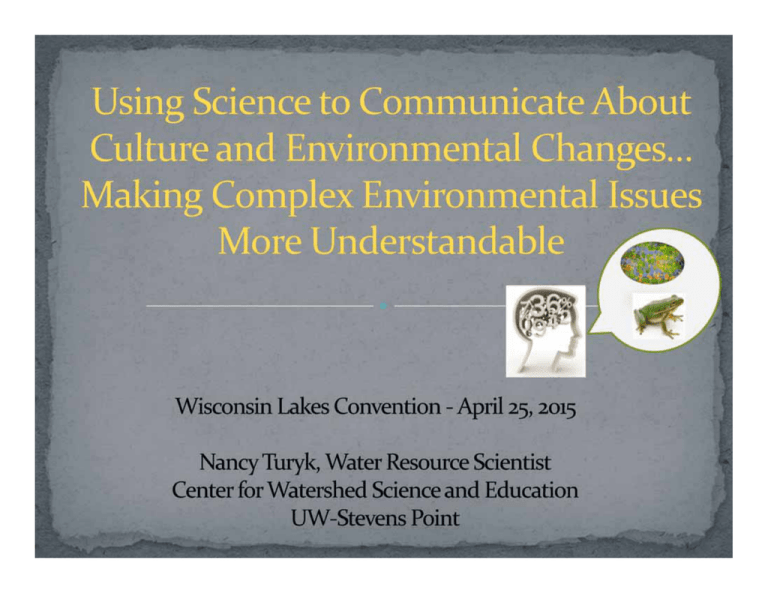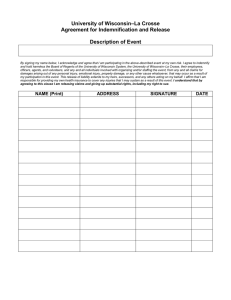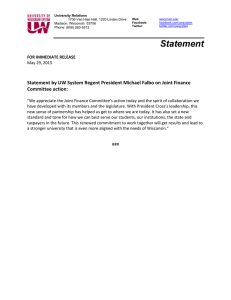Document 12001986
advertisement

Challenges Long term and not intuitive Uncertainty Effects not uniform in Wisconsin How do we make sense of the information? How do we discuss what we have learned with others? Polar bears work for some but not others Step 1 – Learn about the basics (Nancy and Shiba) Understand the lingo Step 2 – Translate (Cathy) Weather The state of the atmosphere at a particular time, as defined by variables such as temperature, precipitation or winds. Climate The "average weather" over a period ranging from months to thousands or millions of years. Climate Change A departure from the expected average weather patterns. NOAA Mitigation The action of reducing the severity, seriousness, or painfulness of something Adaptation A change or the process of change by which an organism or species becomes better suited to its environment Preparedness A state of readiness Resiliency An ability to recover from or adjust easily to misfortune or change Oxford Dictionary Scale the information to a relevant region: Predictions for Central Wisconsin Year round increase in average temperatures and increased temperature extremes Less ice fishing and snowmobiling Shorter or no ice cave visitors $12 million in 2014 Increased evaporation Lower lake levels Longer growing season during the summer More algae and aquatic plants More lakes with hazardous algal blooms (HABs) Warmer water temperatures will allow more aquatic invasive species to exist and even thrive. Gizzard Shad Hydrilla Green Sunfish 25 Percent of time 82°F 0 Yellow 75°F Perch 25 0 64°F 25 Rainbow Trout 0 50 63 75 82 Temperature (°F) 95 Magnuson Changes in Precipitation in Wisconsin: 1950‐2006 http://ccr.aos.wisc.edu/climate_modeling/Wisconsin_Climate/ Precipitation Predictions for Wisconsin: More Extremes! Number of Days with Precipitation above 3 inches Number of Days with Precipitation Below 3 mm http://cida.usgs.gov/climate/derivative/ Projected changes in mid‐century fish distributions (stream miles) Brook trout Response of 50 common stream fishes to highest temperature scenario: Current 1.4°F = 44% loss • All 3 coldwater species decline • All 16 coolwater species decline • 4 warmwater species decline 4.3°F = 94% loss 7.2°F = total loss • 23 warmwater species increase Water Resources in Wisconsin and Climate Change http://climatewisconsin.org/story/fly‐fishing




